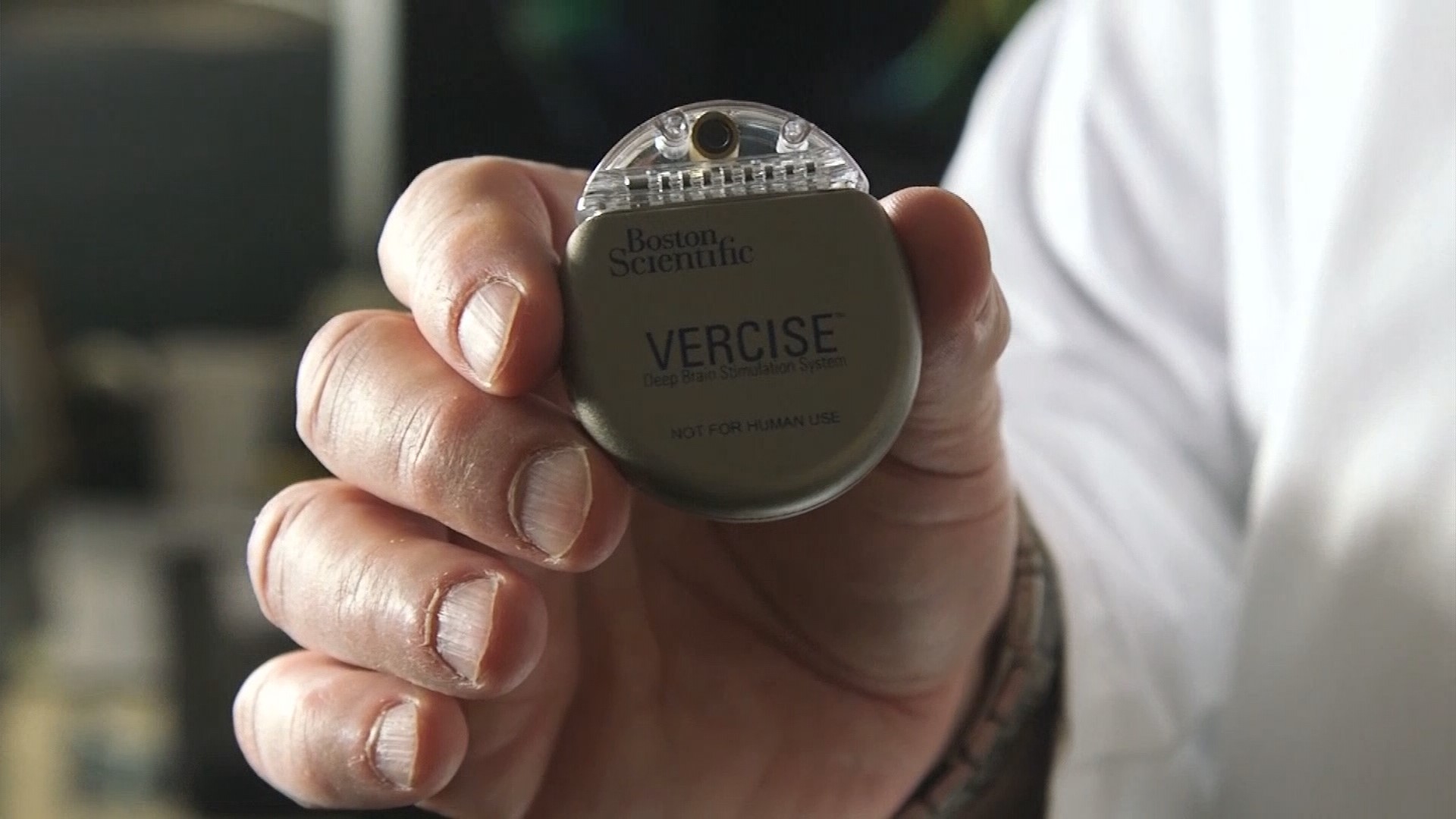It's like a pacemaker for the brain, created to help people with Parkinson's.
"It's a huge deal. You can turn the clock back in these patients," said Dr. Jerrold Vitek, a neurologist from the University of Minnesota.
Dr. Vitek has been studying the brain for years. This device, developed by Boston Scientific called the Vercise, is a new kind of deep-brain stimulation system, implanted in the chest with a tiny 1.27-millimeter wire leed that is surgically inserted into the head.
Dr. Michael Park, a neurosurgeon at the University of Minnesota, says is different from other devices in that it contains eight separate contacts.
"We do the surgery while the patient is awake, so when we turn it on we can actually see the tremors go away," said Dr. Park.
The hope is for instant relief and without pain because there are no pain sensors in the brain.
Deep brain stimulation itself has been getting positive results for years.
But last month, Dr. Vitek and Dr. Park both oversaw the very first patient to receive treatment from the new FDA approved Vercise.
"I would compare it to something like how our cell phones and smartphones have evolved, right? It just has more features that means you can do more things with it," Dr. Park said.
It's considered more personalized and has independent contact control that oversees the amount of current and where it goes into the patient's brain hitting the right spots and avoiding adverse side effects.
"My personal belief is that I think the vast majority of patients would do well with this," Dr. Vitek said.
The Vercise implant is the smallest rechargeable deep brain stimulator currently available with an expected battery life of more than 15 years.


